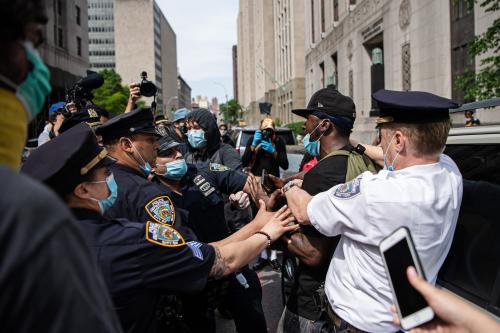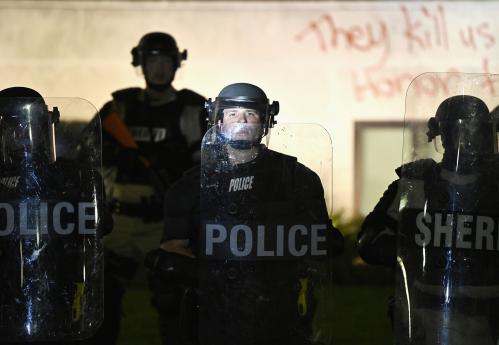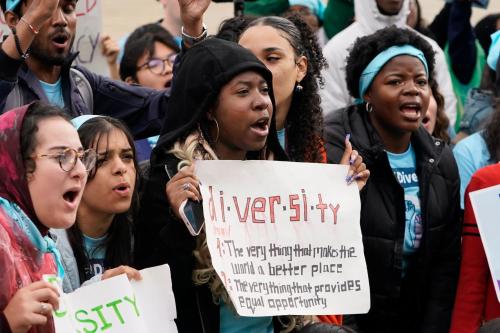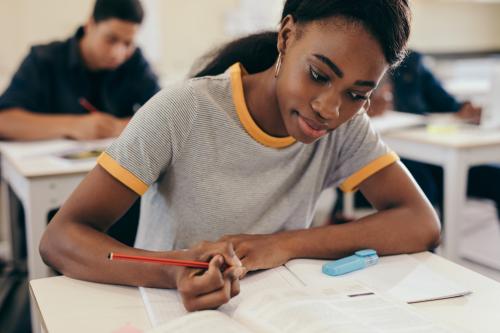Rashawn Ray, a David M. Rubenstein Fellow in Governance Studies at Brookings, testified before the U.S. House of Representatives’ Subcommittee on Highways and Transit on Feb. 24, 2021. The hearing centered on police departments’ enforcement of traffic safety and ways to reduce racial, gender, and language bias in traffic stops. Congresswoman Eleanor Holmes Norton noted the importance of implementing methods to improve trust between communities and law enforcement and to bring about safe, equitable, and just outcomes in traffic stop interactions.
In his testimony, Ray presented “Using Virtual Reality to Improve Equity and Objectivity in Policing and Traffic Stops,” an innovative research program he leads as the Director of the Lab for Applied Social Science Research at the University of Maryland. This program uses virtual reality (VR) scenarios to observe officers’ interactions during traffic stops. The VR program varies the setting and VR character demographics to capture the diverse experiences that law enforcement encounters in the field. Major objectives of the VR program include improving objective decision-making and reducing bias, providing metrics to improve cross-cultural interactions, and offering recommendations for future officer training to reduce conflict and misunderstanding. During the hearing, Ray noted his team’s ultimate goal is to provide safe and innovative training environments to improve officer decision making and improve police-community relationships.
Read Ray’s testimony here. Watch full video of Ray’s testimony (starting around the 53:33 mark) below.






Commentary
TestimonyExamining equity in transportation safety enforcement
February 24, 2021